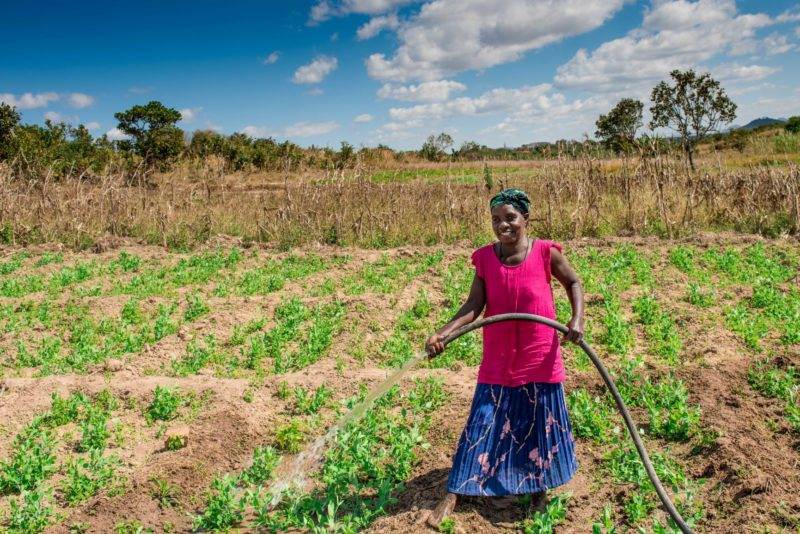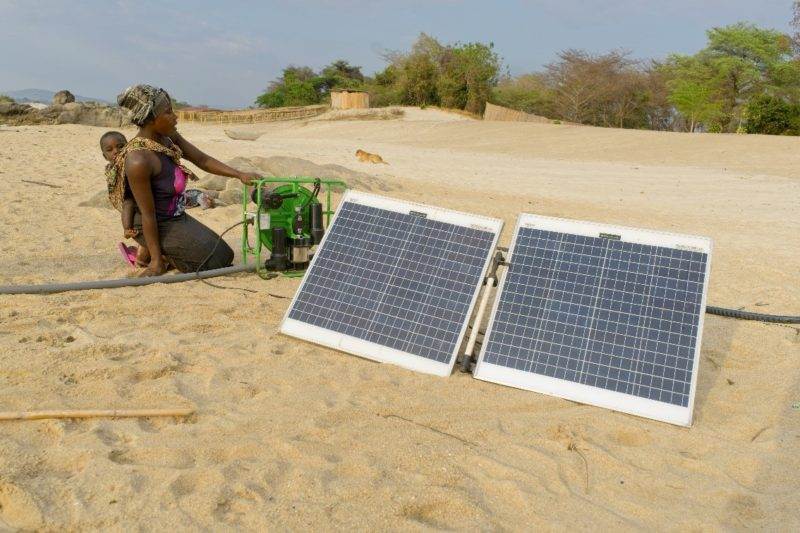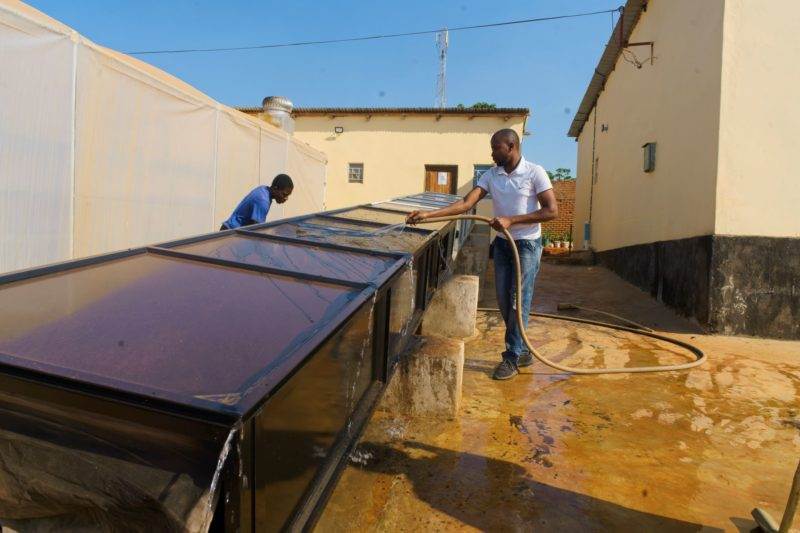In Chintheche, a town situated along the arid lake shores of northern Malawi, farming is challenging. Most men fish for a living and this often leaves women in rural households with the responsibility of tending the land.
Farming remains the only feasible way for most women to supplement their families’ income but they face a number of barriers to success:
- Expectation of looking after their children and elderly relatives
- Limited access to land
- Limited access to finance
- Climate change, causing erratic rainfall and variable yields
- Poor handling practices
- Lack of storage
- Lack of infrastructure and transport
The combination of these factors is devastating. Growing a surplus is difficult, and between 30 to 50 per cent of Malawian farmers struggle with post-harvest loss, meaning securing a reliable income from farming is virtually impossible. (Source: Measuring postharvest losses at the farm level in Malawi by Ambler et al.)
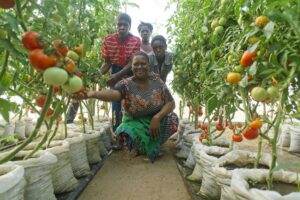
Ireen Manda, Ruth Nkhoma, Ruth Kaunda, Charity Kamanga
A way forward through a bold collaboration
To provide solutions, Practical Action partnered with Modern Farming Technologies, a social enterprise based in Chintheche town in northern Malawi. Since 2015, MFT has been recruiting local agriculture graduates and experts who work with community members to better understand farmers’ challenges and serve as a one stop shop for farming technologies that increase both the yield and quality of crop.
The team at MFT spoke to women farmers to map out where the opportunities lay and determine what effective intervention looked like, and together a productive agriculture business model was co-developed. African Mini Grids a renewable energy developer, then set up the project infrastructure consisting of solar irrigation kits and a solar chill plant to leverage the use of renewable energy and advance farming practices.
The productive agriculture business model consists of:
- A greenhouse farming model yielding high predictable returns from limited acreage
- Women’s Farming Groups who work together to farm and manage individual greenhouses and solar irrigation kits
- Farmer Co-operatives which improve access to loans and resources for women farmers
- Solar pumps to help with irrigation and reduce time spent watering crops manually
- Solar-powered refrigeration to reduce post-harvest loss
- Direct access to reliable markets for produce including hotels, restaurants, and grocery stores across Chinthetche Town
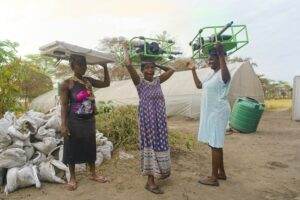
Grace Chiumia, Chatula Kumwenda, Judith Nyirenda
Big change starts small
In June 2021, the project kicked off with 18 women farmers. The first few groups grew produce in poly-tunnels using solar drip irrigation in greenhouses. They signed on to a ‘rent-to-own’ scheme which allows their cooperative groups to own the greenhouses and irrigation pumps after approximately 3 and a half years of harvest and sales. A year later, farmers now have access to quality breeds of tomatoes, better fertilizers, and are also investing in other farming inputs which they previously would not have had easy access to. Although they work only ten hours per week (due to other demands on their time), farmers have seen an average increase in earnings of 38 per cent. Collectively the women have harvested over 43,000kg of tomatoes, improved their decision-making abilities and with the pay-back scheme are looking forward to owning their assets.
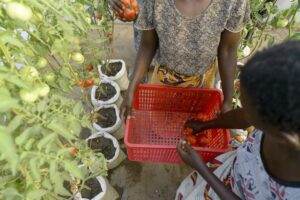
Thousands of kilograms of tomatoes have been sold in new markets
It’s all about how you handle it.
To advance post-harvest handling, the women cooperatives sell the tomatoes they harvest to Modern Farming Technologies’ who own the solar chill plant which is used to store and maintain produce quality. MFT have also created market linkages for the women’s produce ensuring that farmers are not vulnerable to market changes. They are now able to access a range of different buyers, including restaurants, resorts, and large retailers, to reduce risk and single buyer monopolies. With progressive harvests and sales, the goal is to re-invest profits into new greenhouses to allow farmers to expand their businesses and enable new women farmers to enter the scheme.
Atusaye Kayuni, Modern Farming Technologies Director, said: “Many of the farmers who joined the project since June last year were women who struggled to make a reliable income, all they needed was business opportunities. We started small but 15 months later, we have 45 greenhouses in Nkhata Bay District with 135 women engaged in income-generating activities.
Our work here has evidently transformed the livelihoods of women farmers. They have generated an income of $603 in the first year and made a payback of $19,500 Euro into the local economy through their earnings.”
With the rest of the team at MFT, Atusaye looks forward to expanding the project, conducting research on a variety of vegetable crop breeds and working with local graduates and women farmers to make renewable energy work for agriculture in Malawi.
Read first-hand accounts from farmers in Chinteche here.
